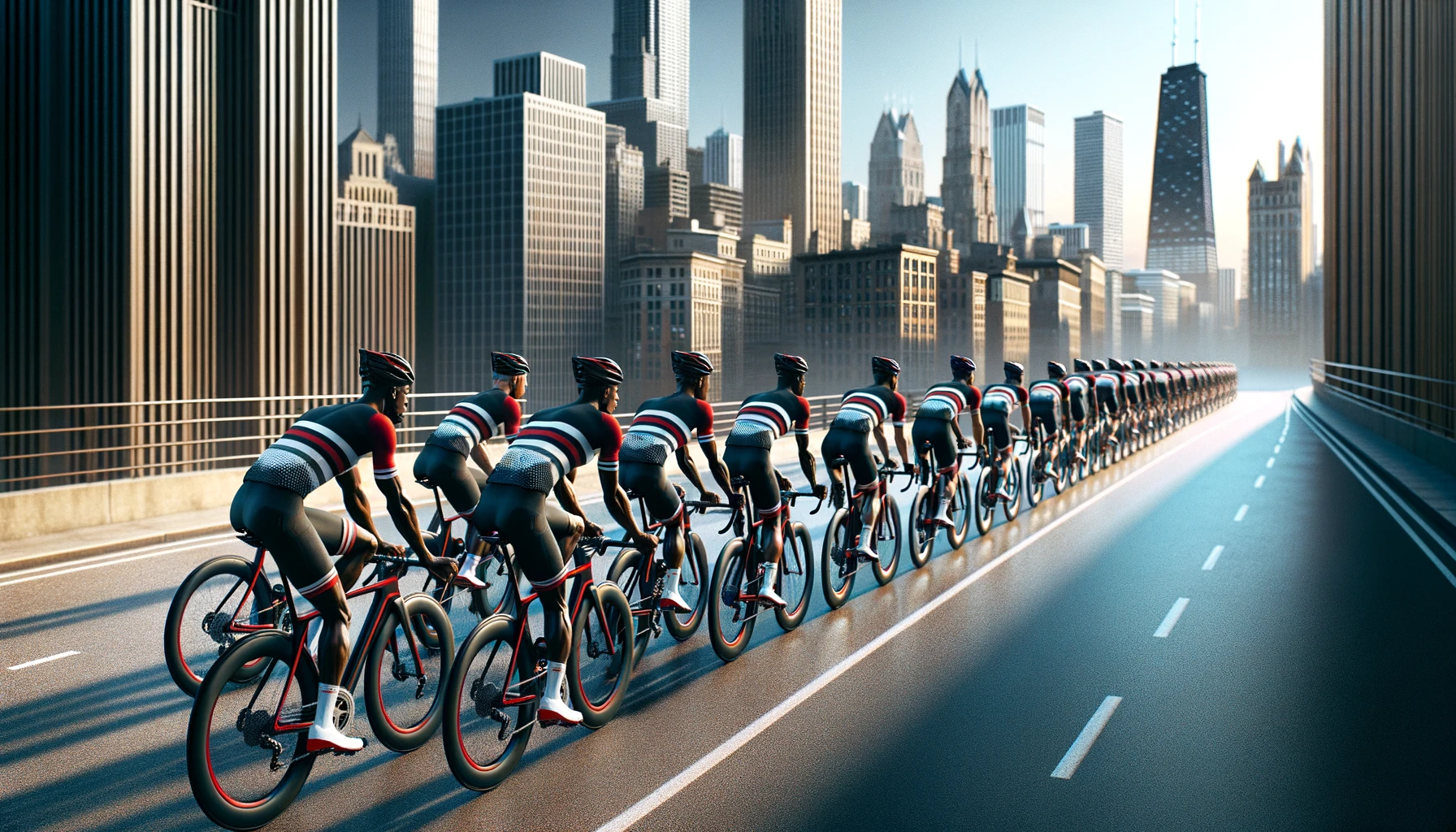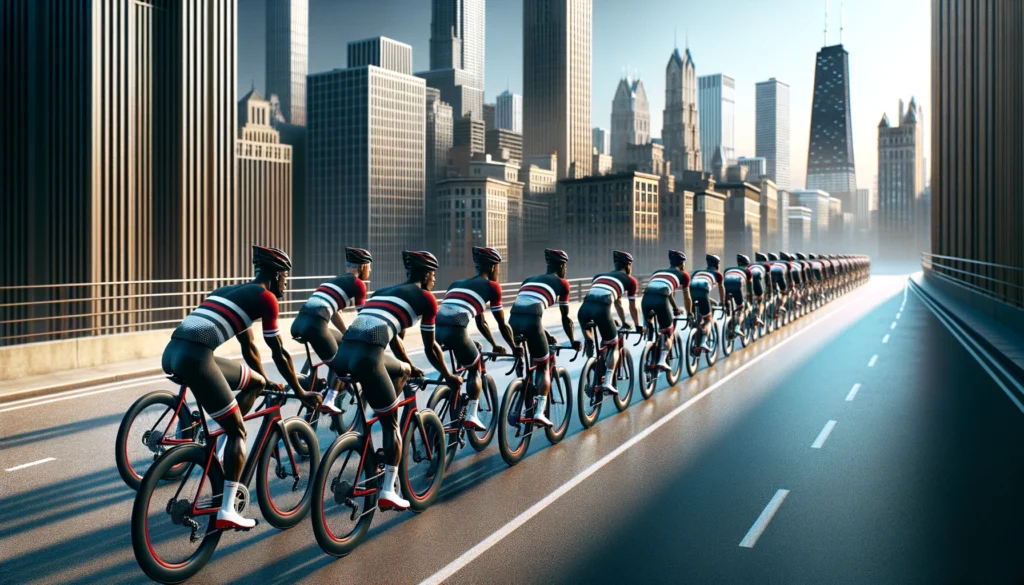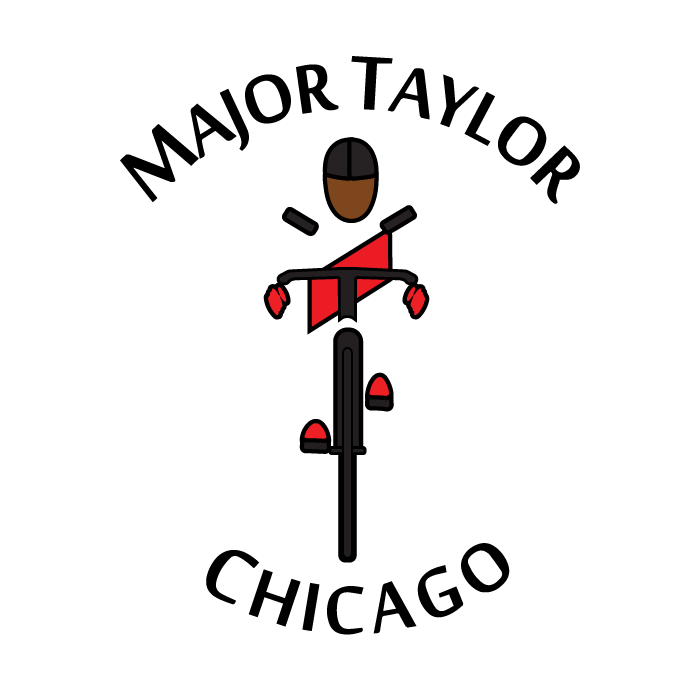Your cart is currently empty!

Biking While Black
—
by
Biking While Black in the USA, like many aspects of life, can be influenced by a range of factors, including location, cultural context, and individual experiences. While there is a growing and diverse cycling community in the United States, the experience of cycling can vary for different individuals. Here are some aspects to consider:
1. Representation and Visibility:
Historically, cycling has been perceived as a predominantly white activity, and the representation of African Americans in the cycling community has been limited. However, efforts to promote diversity and inclusion in recent years have led to a more visible presence of black cyclists, challenging stereotypes and encouraging a broader representation.
2. Cultural and Community Influences:
The experience of cycling can be influenced by cultural and community norms. In some African-American communities, there might be varying levels of interest or acceptance of cycling as a recreational or commuting activity. Efforts to promote cycling within these communities can contribute to changing perceptions and encouraging more people to take up cycling.
3. Navigating Spaces:
Like many outdoor activities, cycling can involve navigating public spaces. African American cyclists may, at times, face racial profiling, discrimination, or bias while cycling, particularly in areas where there are existing tensions. This underscores the need for ongoing efforts to address systemic issues and promote inclusivity.
4. Infrastructure Disparities:
Access to safe and well-maintained cycling infrastructure can vary across neighborhoods. Some areas may lack proper bike lanes, making it challenging for cyclists to navigate busy streets safely. Efforts to address these infrastructure disparities can contribute to a more equitable cycling experience for everyone.
5. Community Building:
Many African-American cyclists find strength and support in community networks and cycling clubs. Joining these groups provides not only companionship on rides but also a sense of belonging and shared experiences. These communities often work towards breaking down barriers and promoting inclusivity within the broader cycling culture.
6. Promoting Diversity in the Cycling Industry:
The cycling industry has recognized the need for greater diversity. Initiatives that support and highlight African American cyclists, as well as creating more inclusive marketing and outreach, contribute to a more welcoming environment for individuals from diverse backgrounds.
7. Celebrating Success Stories:
Highlighting the achievements of African-American cyclists, past and present, helps to inspire others and challenge stereotypes. The success stories of cyclists like Major Taylor, as well as contemporary figures, contribute to changing perceptions about who can be a cyclist and what the cycling community looks like.
8. Challenges and Opportunities:

While there are challenges, there are also opportunities for advocacy and positive change. Many individuals and organizations are actively working to make cycling more accessible, safe, and enjoyable for everyone, regardless of race or background.
In essence, the experience of bicycling as an African American in the USA is diverse and evolving. Positive changes are occurring as the cycling community becomes more inclusive, but there is still work to be done to address systemic issues and promote equal access and opportunities for cyclists of all backgrounds.
In our journey through the multifaceted experience of biking while black in the USA, we’ve explored the challenges, triumphs, and ongoing efforts to make cycling more inclusive for all. At Major Taylor Chicago, we are committed to fostering a cycling community that celebrates diversity, breaks down barriers, and encourages everyone to embrace the joy of cycling. We invite you to join us in this mission, whether you’re an experienced rider or just starting your cycling adventure. Discover the camaraderie, support, and enriching experiences that await you as a member of our club. Together, let’s pedal towards a brighter and more inclusive future for cycling and Making the Major Proud!

Comments
One response to “Biking While Black”
Very well done…. Informative and poignant.
Thx